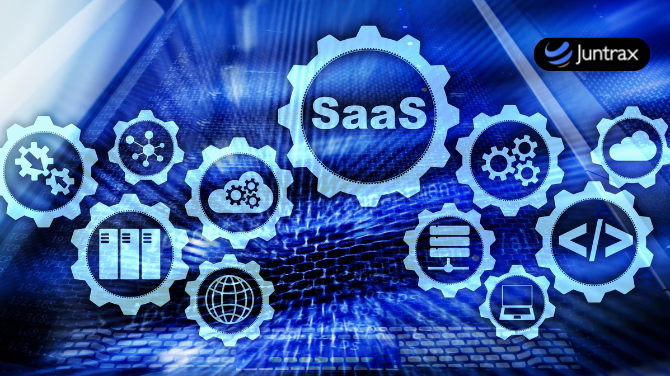Running a small or mid-sized business today requires more than just hard work; it takes the right tools to stay efficient, competitive, and scalable. That’s where business management software comes in. Instead of juggling multiple applications and spreadsheets, a centralized solution helps manage everything from HR and finance to projects and operations.
But with so many platforms on the market, choosing the right solution can feel overwhelming. The key is to find a solution that fits your specific workflows while also offering the flexibility to grow with your business.
In this blog, we’ll break down the must-have features to look for when evaluating business management software, so you can make a confident, future-ready choice.
1. Integrated Dashboard and Centralized Access
The first thing to look for is a clean, unified dashboard that offers visibility across departments. A good business management platform should centralize your operations, letting you access HR, finance, project updates, and analytics from a single location.
This helps reduce the time spent on switching between various tools and gives business leaders real-time insights to make better, faster decisions.
2. Project and Task Management
Whether you’re handling client deliverables or internal workstreams, project tracking is a non-negotiable. Look for features such as:
- Task assignment and scheduling
- Milestone tracking
- Status updates and dependencies
- Team collaboration tools
Effective project management helps ensure accountability, keeps timelines on track, and provides a clear overview of progress across the board.
3. HR and Payroll Integration
Managing your workforce efficiently is just as important as managing clients or finances. An all-in-one platform should offer built-in HR tools, such as:
- Employee profiles
- Attendance tracking
- Leave and holiday management
- Payroll processing
Having these capabilities under the same roof ensures fewer errors, better compliance, and smoother onboarding and payroll runs.
4. Time and Expense Tracking
For service-based businesses, accurately logging hours and managing expenses is vital for both billing and internal reporting. Make sure your software includes:
- Timesheet submission and approvals
- Expense claims with attachments
- Automated billable hour calculations
This not only simplifies the invoicing process but also improves transparency and helps identify areas for cost optimization.
5. Invoicing and Financial Management
Strong financial features are the backbone of any business management platform. You should be able to:
- Create and send professional invoices
- Track payments and overdue accounts
- Generate purchase orders and quotations
- Access profit and loss reports, balance sheets, and cash flow summaries
The more automated and comprehensive the financial tools are, the easier it is to manage cash flow and ensure long-term financial health.
6. Inventory and Asset Management (If Applicable)
If your business handles physical products or equipment, having a built-in inventory or asset management feature is extremely useful. This might include:
- Stock tracking and alerts
- Asset assignment and lifecycle tracking
- Maintenance schedules
A centralized view of your assets helps reduce downtime, avoid overstocking, and maintain accountability.
7. Role-Based Access and Data Security
Security is a critical element when it comes to business management software. Look for platforms that offer:
- Role-based access control
- Secure cloud hosting with encryption
- Regular data backups
These capabilities ensure that sensitive business data remains protected and only accessible to the right people.
8. Scalability and Customization
Your software should grow with you. Whether you’re expanding your team, adding new services, or entering new markets, your business management system should be flexible enough to scale.
Features to consider:
- Modular architecture (so you can add tools as needed)
- Configurable workflows and reports
- Support for multi-location or multi-currency operations
Avoid solutions that box you into a rigid system. Look for one that adapts to your evolving business model.
9. Real-Time Reporting and Analytics
Insightful reporting is what transforms raw data into meaningful action. The right software will offer:
- Pre-built and customizable reports
- Visual dashboards for quick overviews
- Filters and exports for detailed analysis
These reports empower business owners and managers to make informed decisions, allocate resources wisely, and stay proactive, not reactive.
10. Reliable Support and Easy Onboarding
Even the most feature-rich platform can become frustrating if it’s hard to use or lacks timely support. Look for providers who offer:
-
Step-by-step onboarding guides
-
Training videos or live demos
-
Responsive customer support (via chat, email, or phone)
Strong support ensures that your team can get up to speed quickly and continue using the platform effectively as your business grows.
Final Thoughts
Choosing business management software is more than just checking boxes on a feature list; it’s about finding a solution that simplifies how your team works, improves visibility across operations, and sets you up for growth.
Whether you are starting out or growing quickly, prioritizing features such as automation, centralization, and real-time insights will help your business operate more smoothly and stay ahead of the competition.
If you’re looking for a business management software that brings HR, finance, and project management into one easy-to-use ERP system, Juntrax is the best option for your business.
